Are the “Harry Potter…” books and films truly harmless?
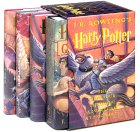
Introduction to the Harry Potter phenomenon
The reading phenomenon known as “Harry Potter” swept the globe, and it truly has an international presence as readers in 200 nations, in over 40 languages, indulge in this series. A U.S. consumer research survey reports that “over half of all children between the ages of 6 and 17 have read at least one Harry Potter book.” With the financial backing of Warner Brothers, Mattel, Coca Cola, and Scholastic, Inc., Potter is sure to be a force to reckon with for years to come. Public school educators and many parents in America are thrilled with a series that has captured the imagination of children like no other in history, prompting a revived interest in reading. Reading is a good thing, but not all is as innocent as Potter fans would have others believe.
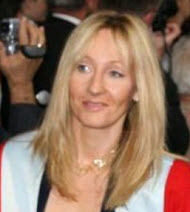
This series of books by British author J.K. Rowling focuses on the plights of young Harry, who is selected to attend the prestigious 1000-year-old Hogwarts School of Witchcraft and Wizardry. Harry himself is an orphan, his parents (practitioners of “white magic”) murdered by the evil Lord Voldemort (a master of the “Dark Arts” [1]. But “when Lord Voldemort, the most powerful Dark Wizard for a century turned the curse that had killed so many witches and wizards on Harry Potter, it rebounded upon Voldemort, ripping him from his body, and his powers gone, barely alive, he fled.” [2]
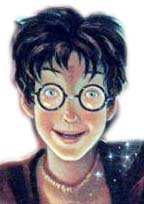
Young Harry is given a strange marking on his forehead. “Through the sacrificial goddess magic of his mother’s love, baby Harry is saved and his blood is given magical powers. Unable to kill Harry, in revenge, Voldemort sears a death curse of a lightning bolt on Harry’s forehead.” [3] (Some have criticized the imagery behind the lightning bolt itself [4].) Rowling, a graduate of Exeter University in England, is very familiar with occultic practices, using elements and philosophies behind “pagan religions, celtic religions, the religions of the druids, witchcraft, [and] satanism.” [5]
Little is said during the time Harry’s parents are killed until he is around 10 years old. At the age of 11, Harry travels to Hogwarts, where he and and other students are taught by the faculty, all accomplished wizards and witches, how to properly use magic tools, spells and rituals.
One such tool is a tail feather from the powerful, mythical Phoenix bird. The school Headmaster, Albus Dumbledore, owns such a bird, a symbol of resurrection. Both Harry and Lord Voldemort use the tail feather in their wand, perhaps symbolizing, as some critics say, that the source of their powers come from the same place, even though Potter and Voldemort are enemies, one using “white” magic and one “dark arts.” The wand is only one of many magical items used and studied.
A Fantasy World
Children are understandably fascinated with the kind of power that Harry and others in his world possess. Author J.K. Rowling says,
“The idea that we could have a child who escapes from the confines of the adult world and goes somewhere where he has power, both literally and metaphorically, really appealed to me.” [6]
Certainly power is appealing, especially “white” witchcraft like this that is made to look so innocent.
Even some Christians leaders agree that it’s “just fantasy” and generally acceptable for the Christian reader, including Chuck Colson of Breakpoint, the editors of World Magazine, and Connie Neal (author of What’s A Christian To Do With Harry Potter?). [7] However, occult experts, Marcia Montenegro of Christian Answers for the New Age [8] and Caryl Matrisciana, author of Gods of the New Age [9], disagree with their Christian peers. Both have personal experience in the occult before becoming Christians.
As one example among many, Caryl points to a chapter in the fourth book entitled Flesh, Blood and Bone.
“Harry is magically transported with his friend Cedric to a dark, scary graveyard. There, Harry is tied to the headstone of Lord Voldemort’s father’s tomb by Voldemort’s slave, Wormtail—a shapeshifter who takes the form of a rat. A slithering snake, synonymous with the presence of Voldemort, circles around Harry. Following an order to kill from a voice of unknown origin, the slave utters a death curse. In shock, Harry witnesses the murder of his friend Cedric.” [10]
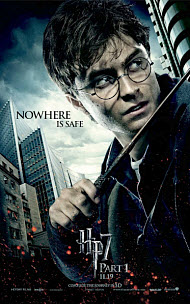
Perhaps all of this sounds a bit scary, but nothing to be concerned about. Potter fans say that this world is just make-believe and has no bearing on the real world. While a few Christians don’t even like to read or see classics such as Sleeping Beauty, Lord of the Rings, or Chronicles of Narnia due to the mere presence of evil, most Christians recognize the good vs. evil element as being clearly delineated. Evil is evil, and good is good, and good is promoted while evil is not.
But in the Potter series, the line is not so clear. The “good” guys practice “white magic”, while the bad guys practice the “Dark Arts”. Readers become fascinated with the magic used (explained in remarkable detail). Yet God is clear in Scripture that any practice of magic is an “abomination” to him. God doesn’t distinguish between “white” and “dark” magic since they both originate from the same source.
“There shall not be found among you anyone who …practices witchcraft, or a soothsayer, or one who interprets omens, or a sorcerer, or one who conjures spells, or a medium, or a spiritist, or one who calls up the dead. For all who do these things are an abomination to the LORD, and because of these abominations the LORD your God drives them out from before you. You shall be blameless before the LORD your God. For these nations which you will dispossess listened to soothsayers and diviners; but as for you, the LORD your God has not appointed such for you.” —Deut. 18:10-14
Furthermore, if one were to use the reasoning that such objectionable material can be included in fantasy literature, then “that line of reasoning would tell you that you could include in fantasy any violence, pornography, whatever you wanted, and still defend those books by that very same statement.” [11]
The problem is, witchcraft is not fantasy; it is a sinful reality in our world.
“J.K. Rowling, the author of the Harry Potter series, has gone through an awful lot of research. She is very accurate (otherwise we would have witches all over the country and the world saying ‘this is not a true representation of our religion.’) This is a true representation of witchcraft, and the black arts, and black magic. And yet we have people that say this is merely fantasy and harmless reading for our children. Actually, what makes this more dangerous is that it is couched in fantasy language, and children’s literature, and made to be humorous, and beautifully written and extremely provocative reading. and it just opens up children to want to have the next one. This is what is so harmful.” [12]
Harry Potter: Witchcraft Repackaged studies elements of Rowlings’s imagery and writings, including the use of the “Potter” name in Pagan religion [13], shapechanging [14], meditation [15], human sacrifice [16], feminine power, Wicca (the religion of witchcraft) [17], the tools, spells and curses used in witchcraft [18], Christian youth and their involvement [19], communicating with the spirit world, reincarnation, situational ethics in witchcraft, the lightning bolt as a power symbol, broomsticks and witches’ hats as phallic symbols, dabbling in divination and sorcery, recruitment, teaching children dark arts, Scholastic Inc.’s involvement, and more.
We can be sure that this video by Jeremiah Films, while probably the first of its kind to deal with Harry Potter from a biblical cautionary perspective, will not be the last. The Christian Booksellers Association’s 13,000 member annual meeting in 2000 had a noticeable lack of anything Potter.
“Clara Sessoms, who manages Living Water Christian Books in Marion, Ind. [says] ‘I don’t think people fully realize what they’re dealing with, and I think anyone who knows anything about spiritual warfare knows those books can open the door to spiritual bondage.’ ‘And I think it’s worse that children are the target,’ said Jessica Ruemler, a buyer for Living Water. ‘It opens the doors for young minds. You put sorcery in, what do you expect to get out?’” [20]
Many concerned parents agree. According to the American Library Association, the best-selling Harry Potter series topped the list of the nation’s most frequently challenged books for two years in a row. [21] Author John Andrew Murray believes that…
“With the growing popularity of youth-oriented TV shows on witchcraft—‘Sabrina, the Teenage Witch;’ ‘Charmed;’ ‘Buffy the Vampire Slayer’—a generation of children is becoming desensitized to the occult. But with Hollywood’s help, Harry Potter will likely surpass all these influences, potentially reaping some grave spiritual consequences.” [22]
Potter has caused quite a stir in many nations, with several Australian Christian schools supporting a banning of the books. “Dr. Chas. Gullo of the Christian Outreach College, a private school in Queensland state, said he read one chapter from Harry Potter and the Goblet of Fire and was exposed to four murders. “It was pretty gory,” Gullo said in Brisbane’s Courier-Mail newspaper.” [23] Rev. Robert Frisken of Christian Community Schools Ltd in Australia says: “The ordinary person is typified as being bad because they have no (magic) powers, and heroes are the people who are using the occult. Good finds itself in the occult, which is an inversion of morality for many Christian people” [24] Even many non-Christian parents have been concerned due to the greatly heightened fear that their younger children have after reading Potter’s books. [25]
While some practicing Wiccans flatly deny any link between Potter’s world and theirs [26], the evidence is undeniably clear that Potter promotes an interest in magic and the occult. Parents, whether Christian or not, must take an active role in what their children are being exposed to and determine what is appropriate. Christians especially should be guided by God’s Word, the Bible.
Author Richard Abanes has written a book called Harry Potter and the Bible. He says that the movies and books not only teach anti-Christian lessons on the occult, but also moral relativism, and desensitize children to profanity and off-color humor.
So, what is a Christian to do? Ask, seek, and knock. Ask the Holy Spirit to guide you as you lead your family in taking a biblical worldview of morality, seeking to please God (and not conform to man). Seek out what the Bible says about the occult (be sure to read our other articles) and how Christians are to react to it. And knock on the doors of your friends who may also be unsure what to do with Harry Potter. There is a useful video titled “Harry Potter: Witchcraft Repackaged” to share with your family, your church, and others.
The Occult
- What is the Occult? Answer
- What does the Bible say about the occult? Answer
- MALEVOLENT SPIRITS—Where do these dangerous, hostile, and evil entities come from?
- WICCANS AND PAGANS—What do they believe? Answer
- What does the Bible say about spirits being left behind on Earth after death? Answer
- “Harry Potter: A Journey to Power” - offsite
- “Harry Potter and Christians” (Reachout Trust) - offsite
- “The Problem With Harry Potter” by Dr. David Brown - offsite
Movie reviews
- Harry Potter: Witchcraft Repackaged
- Harry Potter and the Sorcerer’s Stone (2001)
- Harry Potter and the Chamber of Secrets (2002)
- Harry Potter and the Prisoner of Azkaban (2004)
- Harry Potter and the Goblet of Fire (2005)
- Harry Potter and the Order of the Phoenix (2007)
- Harry Potter and the Half-Blood Prince (2009)
- Harry Potter and the Deathly Hallows: Part 1 (2010)
Notes and References
- Dark Arts: “…differ from other forms of magic in the intent of the wizard using it. Most magic is relatively neutral—it can be used for bad or good. Some magic, however, is Evil in its intention through and through. Spells of this kind are often called curses. Curses are spells that are often intended to cause harm to another person. This intention to do harm places that spell into the realm of the Dark Arts…” as quoted from Steve Vander Ark’s The Harry Potter Lexicon http://www.i2k.com/~svderark/lexicon/
- ibid
- “Harry Potter: Witchcraft Repackaged” © 2001, Jeremiah Films.
- Some fans mimick this marking by giving themselves a lightning bolt on the forehead. This marking causes some concern, as the lightning bolt, in mythology, is known as Thor’s calling card (the god of thunder, rain and fertility), later used by Hitler’s Nazi party in the form of two crossing lightning bolts (according to Christine Hall’s February 3, 1999 article in ESP Magazine.)
- Caryl Matrisciana in Harry Potter: Witchcraft Repackaged © 2001, Jeremiah Films.
- Scholastic.com
- In an interview with Michael Ireland of Assist Ministries, Connie Neal justifies her book by saying: “I saw tremendous opportunity to overcome evil with good, diffusing and using Harry Potter to educate kids about occult dangers, share the gospel in a relevant way, teach kids principled moral decision-making, and spiritual discernment. My friends convinced me that I could help Christians who aren’t comfortable explaining Bible teachings as they correlate to popular culture.”
- “Christian Answers for the New Age is a ministry responding to alternative religions: to inform and educate others about New Age and occult beliefs; to respond to those involved in New Age/occult/Eastern belief systems with the love and truth of Christ (I Peter 3:15-16); and to serve as a resource on aspects of New Age/occult thinking and practices such as astrology, psychic powers, meditation, Witchcraft/Wicca, alternative healing, Magick, etc.” Marcia Montenegro, christiananswersforthenewage.org
- Caryl Matrisciana, “cofounder and producer of Jeremiah Films Inc., is an author, film producer, commercial artist, researcher and world renowned expert on contemporary religions, cults and the occult [who] helped produce more than thirty documentaries revealing today’s cultural trends, with a special emphasis on religious cults.” She is the author of Gods of the New Age, The Evolution Conspiracy and God Makers II.
- Julie Foster, staff reporter for WorldNetDaily
- Robert S. McGee, author of The Search for Significance, as quoted in Harry Potter: Witchcraft Repackaged © 2001, Jeremiah Films.
- Caryl Matrisciana as quoted in Harry Potter: Witchcraft Repackaged © 2001, Jeremiah Films.
- “Potter” is a Pagan witch, “the female goddess of Babylon who is considered the potter who created the human being from clay. God, unable to give birth, is essentially believed to have tried to mimick the Potter. The feminine-oriented cult of witchcraft sees the woman and her process of birth as fundamental in the new life, the transformation, the alchemy, the changing of the inner man to higher consciousness which is what Harry Potter is all about… This is an upside down reversal of what a Christian believes. When they come into a personal relationship with Christ they are transformed and take on the mind of Christ.” Caryl Matrisciana in Harry Potter: Witchcraft Repackaged © 2001, Jeremiah Films.
- Harry’s father appears to Harry as a horned god (a stag).
- Meditation is a recurring theme. Harry is always being encouraged to “concentrate hard enough [and] you can have what you want.”
- The concept of human sacrifice is brought up several times in the Potter series. “Lord Voldemort, Harry’s archenemy, takes a vile of blood from Harry in book number four in order to have the blood run through his own veins in order that he can be resurrected and have a body.” Caryl Matrisciana in Harry Potter: Witchcraft Repackaged © 2001, Jeremiah Films.
- Caryl Matrisciana calls Wicca “The fastest growing religion in America.” Robert S. McGee, author of The Search for Significance, explains that those involved in Wicca believe “there is no Satan, and therefore no evil spirits. Yet they report experiencing spiritual power from which they receive their power, refusing to label these powers evil, they choose to believe their origin is either from nature or natural from within, but neutral.”
- When it comes to spells, proponents of the Potter series defend the books by arguing that the spells aren’t real. While this may be true, Matrisciana argues that the principle is laid that “if you learn certain words, you can have power.” (Warned against by Jesus in Matthew 6:6-8) Potter teaches that there is legitimacy in spells.
- Despite God’s warning (see above) many Christian youth are heavily involved in Potter books. They are unknowingly opening the door to the spiritual world of the occult, often leading to destructive patterns of sexual promiscuity, drug use, depression, etc.
- “Latest “Harry Potter” book meets cautionary response from Christians” by Art Toalston, Baptist Press, July 13, 2000
- “Harry Potter Series Tops Annual List of Controversial Books” Bloomberg, February 2, 2001
- Quote from John Andrew Murray, headmaster of the Episcopal school St. Timothy’s-Hale, Raleigh, N.C., and writer/director of the video “Think About It: Understanding the Impact of TV-Movie Violence,” As quoted in “Latest “Harry Potter” book meets cautionary response from Christians” by Art Toalston, Baptist Press, July 13, 2000
- “Aussie school bans “violent” Harry Potter”, AP, January 26, 2001
- Sydney Morning Herald, March 27, 2001
- “The Trouble With Harry” by Marguerite Kelly, Washington Post, February 14, 2001
- “Wiccans dispute Potter claims”, Ben Roy, Citizen Online-Newfound Area Bureau, October 26, 2000. However, The Isle of Avalon Foundation (England) began offering a “part-time course in witchcraft for the 21st century” according to a Reuters, April 6, 2001 release, in part due to the renewed interest in the occult. Other witches have also noticed an increase in interest.
Recommended resources
- Josh McDowell and Don Stewart, The Occult: The Authority of the Believer Over the Powers of Darkness (San Bernardino, California: Here’s Life Publishers, 1992), 249 pp.
- Danny Korem and Paul Meier, The Fakers (Grand Rapids, Michigan: Baker Book House, 1980).
Relevant Scriptures
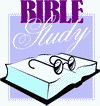 1 Thessalonians 5:21-22—“Test everything. Hold on to the good. Avoid every kind of evil.”
1 Thessalonians 5:21-22—“Test everything. Hold on to the good. Avoid every kind of evil.”- James 1:27—“keep oneself from being polluted by the world”
- 3 John 1:11—“do not imitate what is evil”
- Romans 12:9—“abhor what is evil. Cling to what is good.”
- Deuteronomy 18:9-14—do not learn to imitate detestable ways, including spiritists, sorcerers and witchcraft
- Ephesians 5:11-12—“Have nothing to do with the fruitless deeds of darkness” / “live as children of light”
- 1 Timothy 4:1—don’t “follow deceiving spirits and things taught by demons”
- 1 Corinthians 10:21
- 2 Corinthians 6:14-17—“what fellowship can light have with darkness?”
- Philippians 4:8—think about pure, lovely, noble things
- 1 Corinthians 11:1—“follow the example of Christ”
- 1 Corinthians 10:31—“whatever you do, do everything for the glory of God”
- James 4:7-8—submit yourselves to God / resist the devil / purify your hearts
- Ezekiel 44:23—“…teach my people… to distinguish between the unclean and the clean.”
- Proverbs 22:6—“train a child in the way he should go”
- Matthew 18:6—“if anyone causes one of these little ones who believe in me to sin…”
- Hosea 4:6—“My people are destroyed for lack of knowledge.”
- John 3:19-20—people love darkness instead of light
- Romans 13:12—“put aside the deeds of darkness and put on the armor of light.”
- Ephesians 6:11-18—“take your stand against the devil’s schemes.”
- 1 John 5:19
- 2 Chronicles 7:14
Author: Ken James of Christian Answers. Copyright © 2001, 2010, Films for Christ, All Rights Reserved—except as noted on attached “Usage and Copyright” page that grants ChristianAnswers.Net users generous rights for putting this page to work in their homes, personal witnessing, churches and schools.
